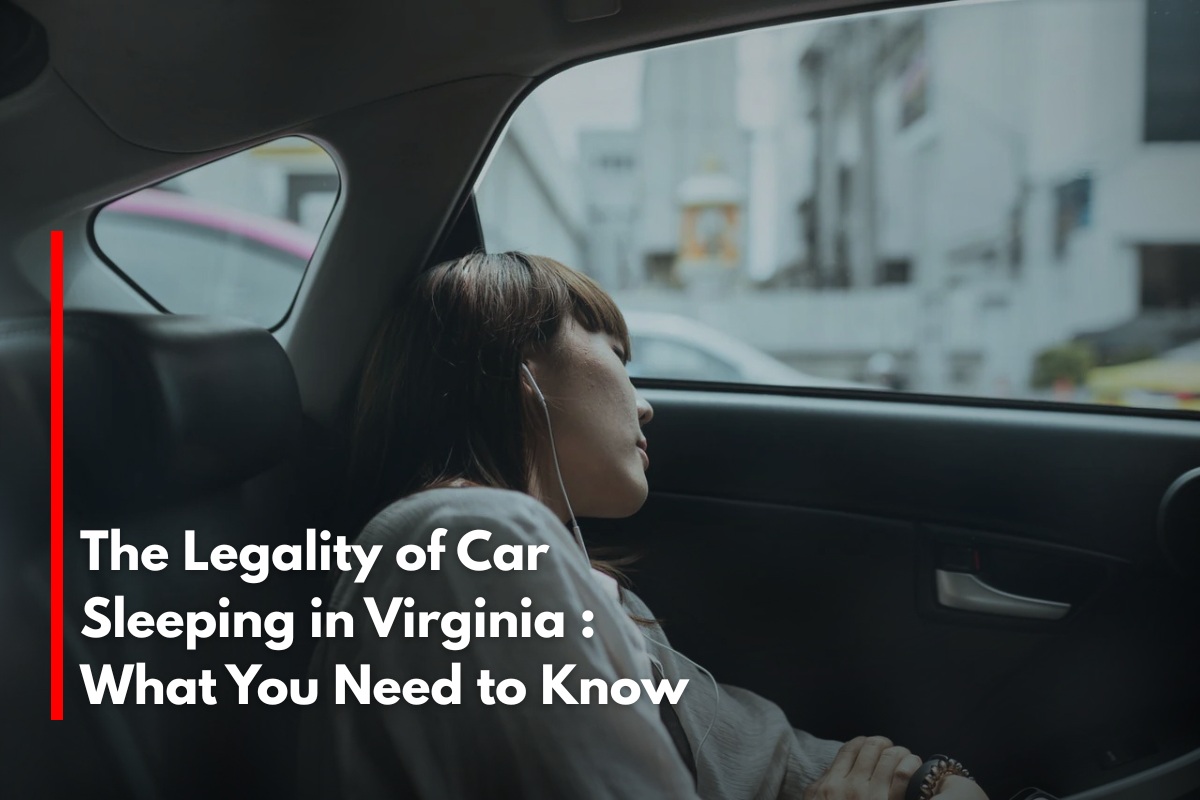Sleeping in your car—whether for a quick nap or an overnight stay—comes with strict legal limitations in Virginia. Knowing the state and local rules can help you avoid fines or even criminal charges. Here’s what you need to know in 2025.
Statewide Laws: No Overnight Sleeping at Rest Areas
Virginia law expressly prohibits sleeping overnight at highway rest areas or waysides. If you’re caught sleeping in your car at any state-run rest stop, you can face a fine of up to $250 per violation. This rule applies even if you’re simply too tired to drive and want to wait until you’re alert enough to continue your journey.
Local Ordinances: Strict City and County Regulations
In addition to statewide restrictions:
Many Virginia cities and counties have local ordinances banning overnight parking, vehicle habitation, or camping in cars on public streets or in parking lots. Oversized vehicles, RVs, or trailers are especially targeted, but passenger cars are not exempt.
Public property camping is also illegal. In many municipalities, it’s unlawful to “camp, lay or sleep on, upon, near or about any public lands or structures belonging to or under the control of the city”.
Violations often result in tickets, fines, or having your vehicle towed.
Private Property: Permission Required
If you want to sleep in your car on private property (such as a friend’s driveway, a business parking lot, or a holiday store), you must have permission from the property owner. Without it, you risk being cited for trespassing—a potentially criminal offense.
Campgrounds and Designated Areas
Those wishing to car camp legally should use permitted campgrounds or RV parks. Virginia law requires these facilities to be properly permitted, and camping outside these areas (on unauthorized public or private land) is not allowed.
Public Safety and DUI Concerns
Crucially, if you attempt to “sleep it off” in your car while under the influence, Virginia treats this seriously. If law enforcement determines you are “in physical control” of the vehicle while intoxicated—even if you aren’t driving—you could be charged with DUI. This includes having the keys in the ignition or being in the driver’s seat while impaired.
Where Can You Sleep in Your Car in Virginia?
Legal locations: Paid campgrounds or RV parks, with permission.
Always check local ordinances: Even where street parking is allowed, overnight stays and vehicle habitation are typically restricted or banned.
Rest areas: Not allowed for overnight stays—even quick naps are risky; use rest stops only for short, lawful stops.
Key Takeaways
Virginia bans sleeping overnight in cars at highway rest areas and on most public property.
Local ordinances frequently add additional restrictions or outright bans on sleeping in vehicles overnight.
Permission is always required to sleep in your car on private property.
Violating these rules can result in fines, tickets, trespassing citations, or even DUI charges if intoxicated.
If you need to rest, stay at a permitted campground or obtain explicit permission from a property owner.
Before planning to car camp or sleep in your vehicle, always double-check city and county ordinances. Staying informed and respectful of the rules is the best way to avoid legal trouble while traveling or resting in Virginia.
Sources
[1] https://reolink.com/blog/is-it-illegal-to-sleep-in-your-car/
[2] https://www.andrewflusche.com/blog/dui-for-sleeping-in-car/
[3] https://dioceseofvaranasi.org.in/illegal-to-sleep-in-your-car-states-where-it-s-not-allowed
[4] https://codelibrary.amlegal.com/codes/virginia/latest/virginia_mn/0-0-0-3009
[5] https://teamjustice.com/is-it-illegal-to-sleep-in-your-car/











